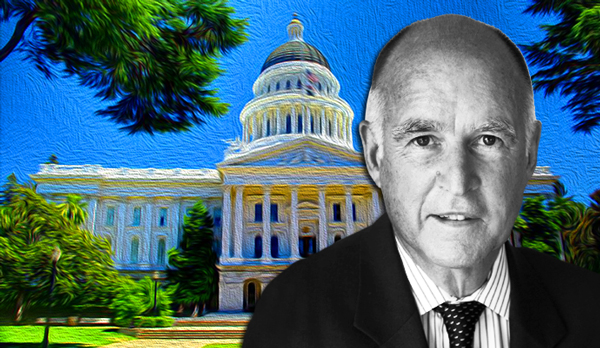The state’s job market is volatile. Its finances rely on high earners whose income fluctuates with the health of the economy. And the Trump administration’s plan to reset the country’s foreign trade rules could deal a crushing blow in a state with three of the 10 busiest ports in the country.
All that is a recipe for another potential crisis for the Golden State should the nation endure another economic downturn.
That was the major takeaway at an early budget conference outgoing Gov. Jerry Brown presented. “What’s out there is darkness, uncertainty, decline and recession, so good luck, baby,” he said on Jan. 10.
While the dire outlook was later softened at his Jan. 25 State of the State speech — “We, too, will persist against storms and turmoil, obstacles great and small,” the governor said — he remains skeptical.
He has compared the current situation with those from the last three major economic downturns, and found California suffered disproportionately, according to a New York Times analysis.
During the early 1990s, following the 2001 dot-com crash and the Great Recession of 2008, California has fared worse than the rest of the country. As one example, state revenue dropped 19 percent in 2009, compared to the 8 percent nationwide dip.
Brown’s plan is to pump $5 billion into the state’s emergency fund, bringing it up to $13.5 billion, through his final budget proposal.
In Los Angeles, the city is facing rising homelessness and a severe housing shortage. Developers are also now seeking to take advantage of a new city law that will encourage residential construction built near mass transit. The city also created a measure to set aside money from development project to go toward affordable housing, which is expected to raise between $93 million and $114 million annually.
[NYT] – Dennis Lynch
